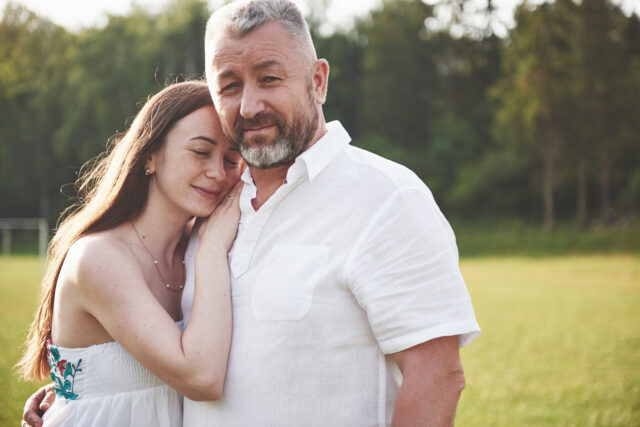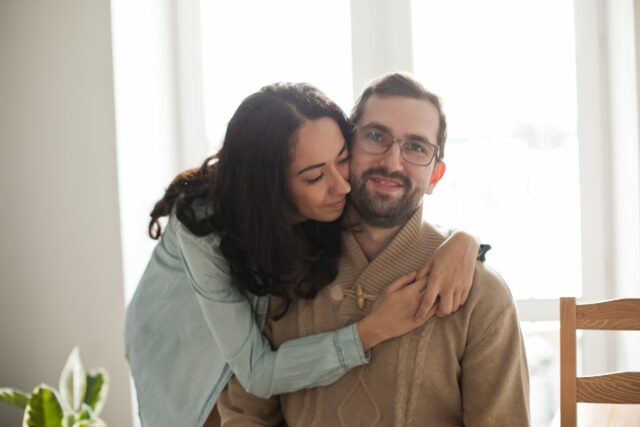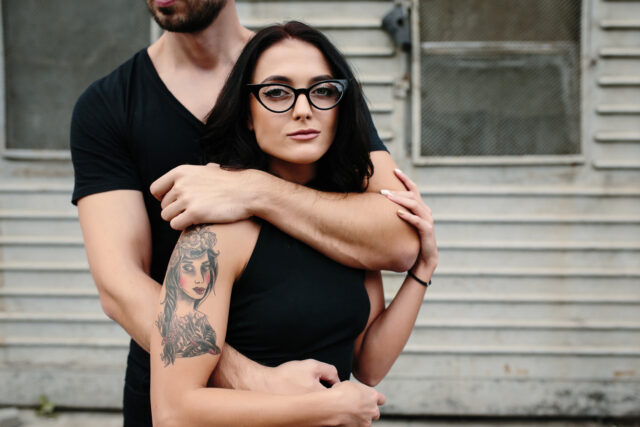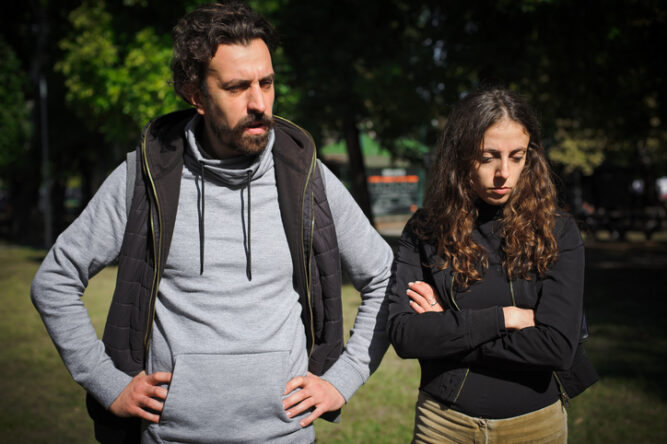Hugs are often seen as warm, comforting, and a way to show affection, but not everyone feels that way.

While some people enjoy physical closeness, others find hugging awkward, overwhelming, or even stressful. It could be personal preference, past experiences, or sensory discomfort, but whatever the case, there are plenty of reasons why hugging doesn’t feel good for everyone. If you’ve ever wondered why some people aren’t fans, here are just a few reasons they hate hugging so much.
1. They’re not big on physical touch.

Some people simply don’t enjoy physical contact, and that’s perfectly okay. It’s not that they dislike the person offering the hug; it’s just that touch doesn’t feel natural or necessary for them. Personal space feels more important than physical closeness, and forcing a hug can make them feel uncomfortable rather than comforted. Not everyone experiences affection in the same way, and some people feel just as connected through words or shared experiences. Just because someone isn’t a hugger doesn’t mean they’re distant or unfriendly; they just prefer other ways of showing care. Accepting this without taking it personally helps avoid awkward moments.
2. They have sensory sensitivities.

For people with sensory processing differences — often linked to autism, ADHD, or anxiety — hugs can feel overwhelming rather than comforting. The pressure, warmth, and even the texture of someone’s clothing can create an overload of sensations that are difficult to process. Instead of feeling safe and relaxed, they might feel overstimulated or even panicked. Some people experience hypersensitivity to touch, meaning even gentle pressure can feel intense or unbearable. While a quick pat on the shoulder might be fine, a full-body embrace might be too much. They’re not necessarily rejecting affection; they’re managing what feels physically tolerable to them.
3. They weren’t raised in a hug-friendly environment.

Not every family is big on physical affection, and if someone wasn’t hugged much as a child, it might not feel natural to them as an adult. Some people grow up expressing love in different ways, like through words, actions, or shared experiences, rather than physical contact. When hugging isn’t part of daily life, it can feel awkward or even forced when it happens. For someone who didn’t grow up with a lot of physical closeness, hugging can feel unnecessary or even intrusive. They might be fond of affection, but maybe their default way of connecting doesn’t involve touch. If someone hesitates before a hug, it might just be because it’s outside of their comfort zone.
4. They associate hugs with past trauma.

For some, physical touch, especially unexpected or forced touch, can be linked to past trauma. Hugs might trigger anxiety or bring up memories that make them feel unsafe rather than comforted. Even if the hug is well-intended, their body might react with tension, discomfort, or even a fight-or-flight response. Trauma responses aren’t always something people can control, and avoiding hugs can be a way of maintaining personal safety. While a hug might feel like a simple act of warmth to one person, it can feel overwhelming or even distressing to someone with a history of unwanted touch. Respecting personal boundaries is key to ensuring everyone feels comfortable.
5. They feel pressure to react a certain way.

Not everyone instinctively knows how to respond to a hug, especially if it’s unexpected. Some people worry about where to put their arms, how long to hold on, or if they’re hugging too tight or too loose. Instead of feeling comforting, the whole experience can feel like a social stress test they’d rather avoid. People who overthink social interactions often find hugging more stressful than enjoyable. They might feel awkward about whether they should initiate, reciprocate, or pull away at the right moment. When hugging feels like a performance rather than a natural exchange, it becomes something to avoid rather than appreciate.
6. They don’t like the feeling of being trapped.

Hugging involves being physically held, which can make some people feel restricted or trapped. For those who value personal space, the sensation of someone wrapping their arms around them, even briefly, can be unsettling. It’s not that they dislike the person hugging them, but they need more space to feel comfortable. Some people struggle with claustrophobia or simply don’t like being restrained in any way. Even a short embrace can trigger discomfort if it makes them feel physically confined. What feels like closeness to one person can feel like a loss of control to another.
7. They prefer affection in other ways.

Not everyone expresses warmth or connection through physical touch. Some people prefer quality time, words of affirmation, or thoughtful gestures instead. A deep conversation, a kind message, or a simple smile can mean just as much, if not more, than a hug. Different people express affection in different ways, and forcing physical contact isn’t necessary for a meaningful connection. Just because someone isn’t a hugger doesn’t mean they’re cold or distant. They might just show they care in other ways. Understanding this makes it easier to respect different comfort levels.
8. They don’t like unexpected hugs.

Even if someone is okay with hugging, they might not appreciate being caught off guard. Surprise hugs, especially from people they don’t know well, can feel intrusive rather than comforting. Some people need a moment to mentally prepare before engaging in physical contact. Being hugged without warning can trigger discomfort, even if the person generally enjoys hugs. Some prefer to initiate hugs themselves, or at least see them coming. Respecting personal space and checking in before hugging can help avoid awkwardness.
9. They’re not comfortable with certain people hugging them.

Who the hug is coming from matters. Some people are comfortable hugging close friends or family but feel uncomfortable hugging colleagues, acquaintances, or strangers. Physical closeness means different things in different relationships, and not everyone wants to hug just because it’s expected. It’s not personal — just because someone avoids a hug doesn’t mean they dislike the person. Some people are selective about who they share physical affection with, and that’s completely okay. Respecting those boundaries makes interactions more comfortable for everyone.
10. They worry about hygiene or personal boundaries.
 Source: Unsplash
Source: Unsplash Not everyone wants to be in close physical contact with people for practical reasons. Some people are more aware of germs, don’t like the idea of sharing personal space, or simply don’t feel comfortable being touched. It’s not about being rude —it’s just about personal preference and boundaries. For some, personal space is important for feeling at ease. A handshake, wave, or even a simple nod can feel just as meaningful as a hug without the discomfort of close contact. Everyone has different comfort levels, and it’s always okay to prefer personal space.




